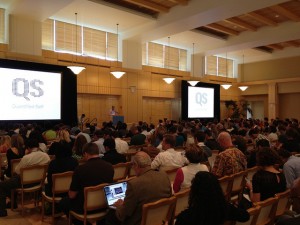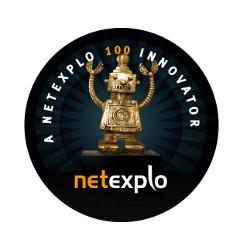During three weeks in January my colleague Michael Kai Petersen and I had the opportunity to teach our course on User Experience Engineering with the twist that it was also offered as a KAIST e-learning course together with the KAIST Division of Web Science and Technologies (WebST). Students from KAIST could tune into the lectures that were being streamed live in the morning here, which were in the afternoon in South Korea.
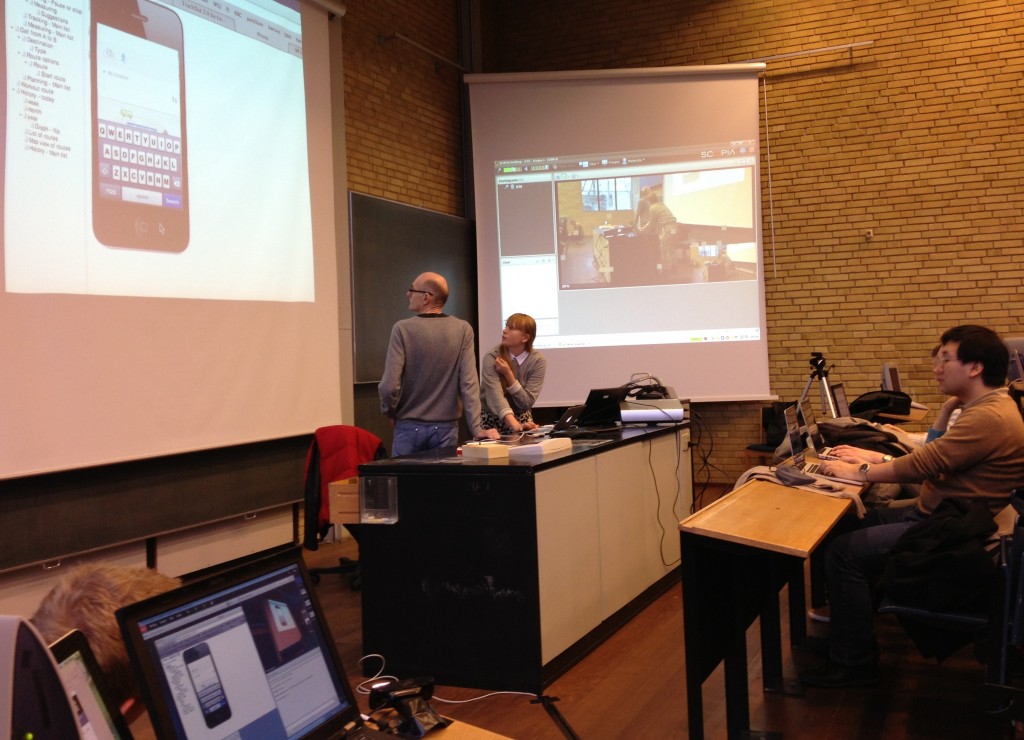 In terms of e-learning I found that a major challenge is the high level of interactivity in the course. Throughout the three weeks students continuously work on assignments that involve conceptualizing novel prototype gesture interfaces which are presented and evaluated in class. While the Adobe Connect for eLearning environment offers sharing of multiple content elements (streaming video, slides, notes, discussion, etc.) the technology is still a barrier. That is, latency is an issue and the bandwidth is still limited in terms of offering a seamless and transparent dialogue that is an integral part of the interactivity and evaluation that is a core element in this course. Most importantly it was a great learning experience.
In terms of e-learning I found that a major challenge is the high level of interactivity in the course. Throughout the three weeks students continuously work on assignments that involve conceptualizing novel prototype gesture interfaces which are presented and evaluated in class. While the Adobe Connect for eLearning environment offers sharing of multiple content elements (streaming video, slides, notes, discussion, etc.) the technology is still a barrier. That is, latency is an issue and the bandwidth is still limited in terms of offering a seamless and transparent dialogue that is an integral part of the interactivity and evaluation that is a core element in this course. Most importantly it was a great learning experience.
Category Archives: blog
Cognitive Measurements at the Quantified Self Conference
Together with Yoni Donner (who’s behind Quantified Mind) I did a breakout session on the topic Cognitive Measurements at the Quantified Self Conference at Stanford.
Our motivation was to put more emphasis on cognitive measurements in the QS community saying that measuring cognitive functions is difficult but provides a much richer understanding of ourselves compared to single-dimension measurements (such as steps taken, heart-rate and weight) that have been the primary focus of the QS community…
Stanford University
I’m now a visiting scholar at Stanford University where I join the Calming Technology Lab to work on aspects of personal informatics and quantified self for future pervasive and wearable computing/sensing systems.

Camilla B. F. Jensen new PhD student
Camilla B. F. Jensen joins the lab as a new PhD student in the Cognitive Systems Section at DTU Informatics under my supervision and co-supervised by Michael Kai Petersen. The working title of her PhD project is Design of cognitive interfaces for personal informatics feedback. Welcome, Camilla!
Smartphone Brain Scanner Available as Open Source
We are proud to announce the availability of the Smartphone Brain Scanner as open source under the MIT License.
SmartphoneBrainScanner is a framework for building cross-platform real-time EEG applications. Originally developed at Technical University of Denmark for collecting and analyzing signals from Emotiv EPOC headset, its extensible architecture allows working with various EEG systems and multiple platforms.
SmartphoneBrainScanner contains state-of-the-art techniques for working with multi-channel EEG signal in real-time, most notably source reconstruction methods with online adaptation to the noise level. Current implemented source reconstruction approaches cover the minimum-norm and low resolution tomography (LORETA) methods formulated in a Bayesian framework using a expectation-maximization scheme for hyperparameter estimation. The SBS2 source reconstruction is realized using a pre-build forward model connecting the cortical surface with the electrodes at the scalp. The current forward model provided with the software is a 3-spheres model obtained from the Matlab toolbox SPM8 using coarse spatial resolution and with sensor positions in accordance with the Emotiv EPOC system.
Source code and additional information is available on the smartphonebrainscanner project website.
ArtistRecommender winner app at Roskilde Labs
With the Roskilde ArtistRecommender app for Android, it is possible to get personal artist recommendations. Find the bands playing at Roskilde Festival which are similar to your taste in music, and explore new music at the Roskilde Festival.
The app is developed by three masters students in our Digital Media Engineering program at DTU Informatics under my supervision and was recently selected as one of four winner apps at Roskilde LABS ’12. Congratulations to Erik Beuschau, Michael Lunøe and Rasmus Theodorsen.
The DTU Roskilde site also has a short article (in danish) about the ArtistRecommender app.
Experiments with mobile apps at Roskilde Festival 2012
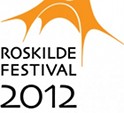 This year at Roskilde Festival we are running a set of experiments by having festival participants using cool apps that have been developed by students in our lab:
This year at Roskilde Festival we are running a set of experiments by having festival participants using cool apps that have been developed by students in our lab:
-
Orange Fever – a massive social game where you infect others using Bluetooth and spread the ‘Orange Fever’
-
Hide and Seek – a game about meeting new people at Roskilde Festival by means of your smartphone
-
Roskilde Decibel – the app will collect ambient noise level showing the user the level of noise exposure s/he has been exposed to
-
MusicNerd – navigate between concerts in a tightly packed music schedule at Roskilde Festival 2012
-
SoundRate – rate your music preferences and experiences and provide useful feedback
-
ArtistRecommender – browse the artists at Roskilde Festival 2012 and get personal recommendations
All apps can be downloaded from Google Play.
Personal Informatics in Practice workshop at CHI 2012
Presentation of research paper “A Cross-Platform Smartphone Brain Scanner” at CHI 2012. The Personal Informatics in Practice: Improving Quality of Life Through Data workshop will be a gathering of researchers, designers, and practitioners exploring how to better support personal informatics in people’s everyday lives.

Guest Post on the Quantified Self Blog
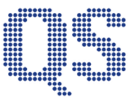 Authors of articles for the Personal Informatics in Practice workshop at CHI 2012 in Austin, TX on May 6, 2012 have been invited to write a summary for the Quantified Self Blog. Our Blog Guest Post is a summary of our paper “A Cross-Platform Smartphone Brain Scanner”. It is authored by Jakob Eg Larsen, Arkadiusz Stopczynski, Carsten Stahlhut, Michael Kai Petersen, and Lars Kai Hansen.
Authors of articles for the Personal Informatics in Practice workshop at CHI 2012 in Austin, TX on May 6, 2012 have been invited to write a summary for the Quantified Self Blog. Our Blog Guest Post is a summary of our paper “A Cross-Platform Smartphone Brain Scanner”. It is authored by Jakob Eg Larsen, Arkadiusz Stopczynski, Carsten Stahlhut, Michael Kai Petersen, and Lars Kai Hansen.
The workshop will be a gathering of researchers, designers, and practitioners exploring how to better support personal informatics in people’s everyday lives.
Smartphone Brain Scanner selected for Netexplo 100 2012
Grant from H. C. Ørsted Foundation
We have received a grant from the H. C. Ørsted Foundation (in danish: H. C. Ørsteds Fond for Teknisk-Videnskabelige undersøgelser) to support our research in human behavior and mobility modeling using smartphones and wearable sensors.
Medico Bazar 2012
We participate in the Medico Bazar 2012 where researchers and start up companies exhibit their projects at DTU.
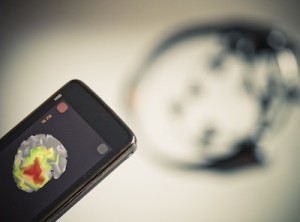
NIPS 2011 Demo
We demo our smartphone brain scanner at the Neural Information Processing Systems (NIPS) conference, Granada, Spain, December 12-17, 2011.

Data enables a better life
My colleague Carsten Stahlhut and I gave an interview to P1 Harddisken about our smartphone brain scanner and the recent Quantified Self Conference in Amsterdam.

The interview (in Danish) is available as a podcast and starts about the 14:20 mark.
My 5 minutes as a Quantified Self “Rock Star”
I presented our Smartphone Brain Scanner at the first Quantified Self Conference in Europe. Since I believe in the eating your own dog food mantra I was wearing the neuroheadset and using the smartphone brain scanner while giving my short Ignite Talk.
If you thought giving an Ignite Talk was stressful (a 5 minute presentation accompanied by 20 slides each displayed for 15 seconds, and the slides automatically advance) then try giving a live demonstration of your research prototype meanwhile :-)
Feeling like a rock star was during the break after the presentation where I got to talk to so many interesting people from the quantified self community that were interested in our research.
The smartphone brain scanner explained
On Nokia Conversations Ph.D. student Arek Stopczynski “talks us through this innovative breakthrough product that works by connecting a commercially available wireless 14-channel EEG headset to a Nokia N900 smartphone”.
More information about the project is available here.
Affective Computing and Intelligent Interaction (ACII 2011)
We are presenting two research papers and a demo of our smartphone brain scanner at the Affective Computing and Intelligent Interaction (ACII2011) conference in Memphis, Tennessee on October 9 to 12, 2011.

New Scientist: Phone app runs portable brain activity scanner
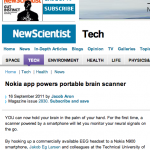 “YOU can now hold your brain in the palm of your hand. For the first time, a scanner powered by a smartphone will let you monitor your neural signals on the go.”
“YOU can now hold your brain in the palm of your hand. For the first time, a scanner powered by a smartphone will let you monitor your neural signals on the go.”
New Scientist Magazine issue 2830 14 Sept 2011 has an article Phone app runs portable brain activity scanner describing our Smartphone Brain Scanner.
Smartphone Brain Scanner
A video demo of our smartphone brain scanner is available:
More information available here.
Roskilde ’11 ArtistRecommender gets attention
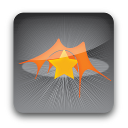 The Roskilde ’11 ArtistRecommender app developed by a team of DTU students Erik Beuschau, Michael Lunøe and Rasmus Theodorsen, as part of the festival courses in the Roskilde Festival powered by DTU Students initiative is now formally promoted by Roskilde Festival.
The Roskilde ’11 ArtistRecommender app developed by a team of DTU students Erik Beuschau, Michael Lunøe and Rasmus Theodorsen, as part of the festival courses in the Roskilde Festival powered by DTU Students initiative is now formally promoted by Roskilde Festival.
Also Berlingske has an article discussing ‘Smart apps for Roskilde Festival’ mentioning the Roskilde ’11 ArtistRecommender app.

